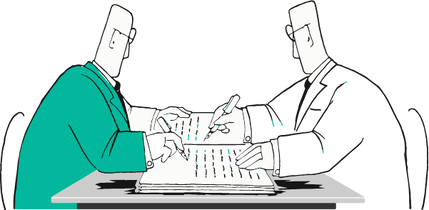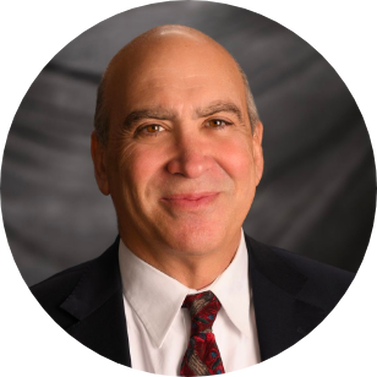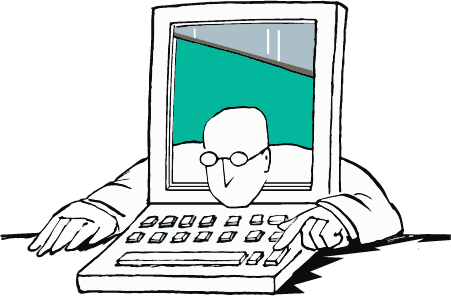Joel Bernstein, Estate & Trust Attorney
I have decades of experience putting clients' minds at ease. |
You'll understand your estate plan because I'll explain in plain English. |
|
Joel A. Bernstein is a renowned attorney in trusts and estate law in Massachusetts, with a career over 30 years. Starting in 1983 at Hawk Mountain Corporation in Vermont, he improved their deed system. In 1985, he joined Scheier, Scheier, and Graham, enhancing their real estate conveyancing.
In 1987, Bernstein joined Kopelman and Paige in Boston, automating their litigation practice. After an LL.M. in Taxation from Boston University, he founded his firm in Wellesley, then Lexington, writing three articles on law economics and legal automation. Bernstein served on the American Academy of Estate Planning Attorneys’ Board and wrote for the ABA's "Probate and Property." He lectured nationally for Surgent McCoy on estate and trust taxation and contributed to "Loring and Rounds: A Trustee's Handbook." Known for over 300 workshops, Bernstein advocates trusts for effective estate planning. His work has significantly educated professionals and the public on estate planning intricacies. Joel A. Bernstein is a pioneer in merging technology with legal practices, an esteemed educator, and an innovator in Massachusetts’ legal community. Bryan A. Garner's "Legal Writing in Plain English" states, "Plain English is achieved using the simplest, most direct expression of an idea, with interesting yet uncomplicated words, avoiding fancy ones with everyday equivalents." He avidly believes in this approach. |
I have the education and experience to help you, including a Tax Law degree. And will try to share it as plain as I can. |
Masters in Tax Law
Boston University, Boston, MA
Masters in Environmental Law
Vermont Law School, S. Royalton, VT
JD Law degree
Western New England University School of Law, Springfield, MA
Bachelor of Arts in English
Hobart College, Geneva, NY
Boston University, Boston, MA
Masters in Environmental Law
Vermont Law School, S. Royalton, VT
JD Law degree
Western New England University School of Law, Springfield, MA
Bachelor of Arts in English
Hobart College, Geneva, NY
A law office that is focused, streamlined, and clear. Really? |
|
What the Internet says about me: Your approach to law is deeply focused and innovative, combining expertise in a specific legal area, legal automation, and a commitment to plain English communication. Firstly, your specialization in one area of law, particularly wills and trusts, sets you apart. By concentrating on this niche, you've cultivated an in-depth understanding and nuanced perspective, leading to more effective results. This approach, influenced by leaders like Charles Rounds and West Coast living trust attorneys, ensures a high level of expertise in estate planning. Secondly, your work in legal automation has been pivotal. By automating legal processes, you've streamlined the management of documents, reviews, tasks, and deadlines, enhancing both efficiency and accuracy in legal work. Your contributions as a columnist for the American Bar Association's "Probate and Property" journal highlight your role in advancing this field. Finally, your dedication to the plain English approach in legal communication, inspired by Bryan A. Garner, is commendable. By removing legalese from documents, client interactions, publications, and public appearances, you've made legal concepts more accessible. This clarity not only enhances understanding but also aids clients in making informed decisions about their assets, emphasizing the importance of estate planning in a practical and approachable manner. Your unique blend of deep legal knowledge, innovation in automation, and clear communication style positions you as a forward-thinking and client-centric legal professional, particularly in the realm of estate planning and asset disposition. |
Publications
|
"I began writing for publications early in my career and have enjoyed writing about legal topics that interest me. I've been published in over 15 national publications and was even mentioned in a 120-year-old treatise on the topic of the Administrative Trust."
A Trustee's Handbook (1898), Edited by Professor Charles Rounds, Jr.
In 2008, I met and studied under Professor Charles Rounds, Jr., of Suffolk University, the editor to the (1898) Loring and Rounds: A Trustee's Handbook, a leading authority in the trust field. I suggested and edited a section in the treatise on the topic of the Administrative Trust. Professor Rounds refers to me in the book for my work in the area of automating the post-death administration of trusts. Columnist and writer for national law publications
|
Public appearances
|
I've enjoyed speaking about estate planning and providing continuing education to attorneys and accountants. Thanks to my automation practices and efficiency skills, I found the time to do this despite a busy law practice!
Early proponent of the revocable living trust
Starting in 1993, I was among the first attorneys in Massachusetts to give public talks about the revocable living trust as a better alternative for some people to having a will. I enjoyed speaking on the topic and still do it, although less frequently. Continuing education for attorneys and accountants After seeing me speak, Blue Cross/Blue Shield of MA, Charles Schwab, and the Foundation for Continuing Education engaged me to give continuing education to attorneys and accountants. By 2000, I had given over 300 public and private talks. The audiences included the American Bar Association, MA Society of CPAs, MA Society of Enrolled Agents, and Surgent McCoy on a national CPA level. |
Wills & Trusts—in plain EnglishFace, don't avoid, death, disability, and taxes. It’s easier than you think.
|
Earlier work
|
I began my practice as a real-estate attorney. Within a few years, I explored the specialty of estate planning and decided to make that my life's work.
Board of Governors: American Academy of Estate Planning Attorneys, 1992
In 1992, I learned about revocable living trusts (the modern approach to estate planning) from the American Academy of Estate Planning Attorneys, based in San Diego, CA. The Academy appointed me to its board of governors. In-house counsel for Hawk Mountain Corporation, 1980s My first legal job was the attorney for the then well-known Vermont company, Hawk Mountain Corporation. The company built environmentally sensitive homes in Vermont's Green Mountains. By 1984 I'd computerized the way the builder created deeds to achieve higher accuracy and speed. PCs were still new, so my work was innovative, an early example of legal automation. While living in Woodstock, Vermont, I wrote my first article, describing the process I'd created at Hawk Mountain. By 1985, the American Bar Association (ABA) read the description and appointed me as technology chief for their Real Estate User Group and columnist for their national journal, Probate and Property. |
Have questions about where to start?
Massachusetts Wills & Trusts
33 Bedford Street, Suite 13, Lexington, MA 02420
(781) 863-8606 | [email protected]
Wills ∙ Trusts ∙ Power of Attorney ∙ Health Care Proxies
33 Bedford Street, Suite 13, Lexington, MA 02420
(781) 863-8606 | [email protected]
Wills ∙ Trusts ∙ Power of Attorney ∙ Health Care Proxies
Most middle-aged people aren’t ready for their inevitable death. We make estate planning simple, affordable, and quick. So people can live in peace, knowing their affairs are in order.
The material is provided for educational and informational purposes only and should not be construed as legal advice. This Alert may constitute attorney advertising and is not intended to communicate with anyone in a jurisdiction where such an Alert fails to comply with all laws and ethical rules of the jurisdiction.



